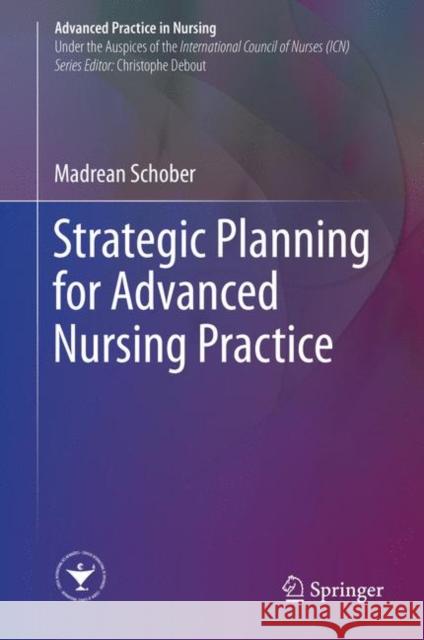Strategic Planning for Advanced Nursing Practice » książka



Strategic Planning for Advanced Nursing Practice
ISBN-13: 9783319485256 / Angielski / Twarda / 2017 / 129 str.
Strategic Planning for Advanced Nursing Practice
ISBN-13: 9783319485256 / Angielski / Twarda / 2017 / 129 str.
(netto: 134,15 VAT: 5%)
Najniższa cena z 30 dni: 134,90
ok. 22 dni roboczych.
Darmowa dostawa!
Under International Council of Nurses (ICN) auspices
"It is intended as a reference for healthcare professionals, healthcare decision-makers, key stakeholders, and others interested in the advancement of nursing worldwide. The author has extensive experience and is well spoken in the area of advanced nursing practice in the international arena. The book is well organized and concisely written. ... This is a unique book and a valuable addition to the advancement of nursing internationally." (Kathleen M. Woodruff, Doody's Book Reviews, February, 2018)
Madrean Schober, PhD, MSN, ANP, FAANP is a nurse practitioner, educator, mentor, writer, lecturer and consultant with expertise in the development of advanced practice nursing roles, healthcare policy, curriculum design and programme development. She has been an international consultant with expertise in role development for 15 years, past-Chair of the ICN International Nurse Practitioner/Advanced Practice Nursing Network as well as International Relations Liaison for the American Academy of Nurse Practitioners.
This eagerly anticipated book equips readers to understand the dynamics of policy processes, relevant decision-making and the significance of key decision-makers. It also emphasizes the usefulness of negotiation and diplomacy skills in order to support the development of an advanced nursing practice (ANP) initiative that involves the identification of pivotal issues to ensure that nurses unlock their full potential. Topics include a definition of strategic planning, essential factors to bear in mind, and frameworks to use in the context of formulating effective policies. By addressing outcome indicators and research, this volume offers a comprehensive approach to coordinated planning, and will appeal to advanced practice nurses, healthcare planners and policymakers, as well as administrators at hospitals and healthcare institutions.
1997-2026 DolnySlask.com Agencja Internetowa
KrainaKsiazek.PL - Księgarnia Internetowa









